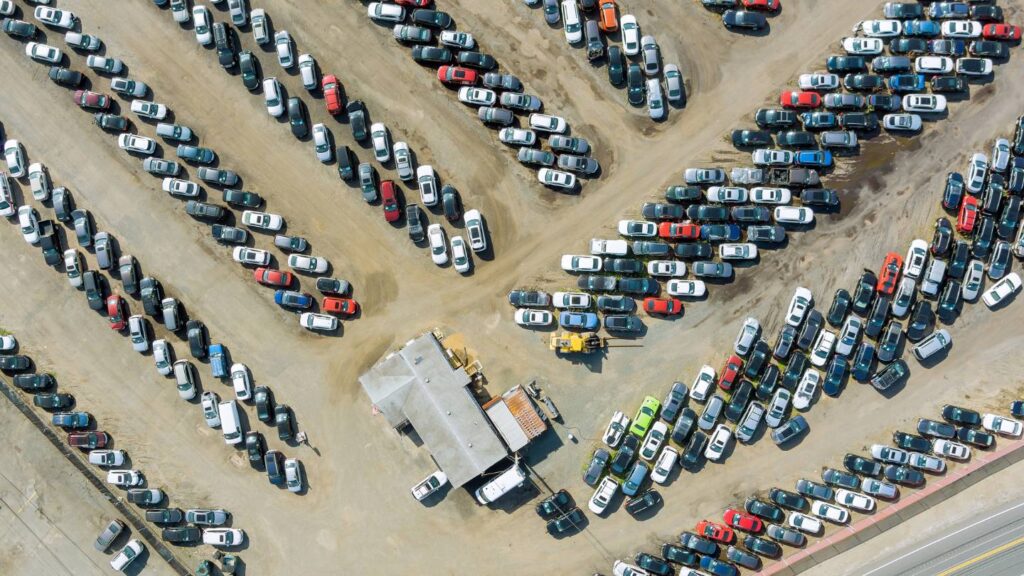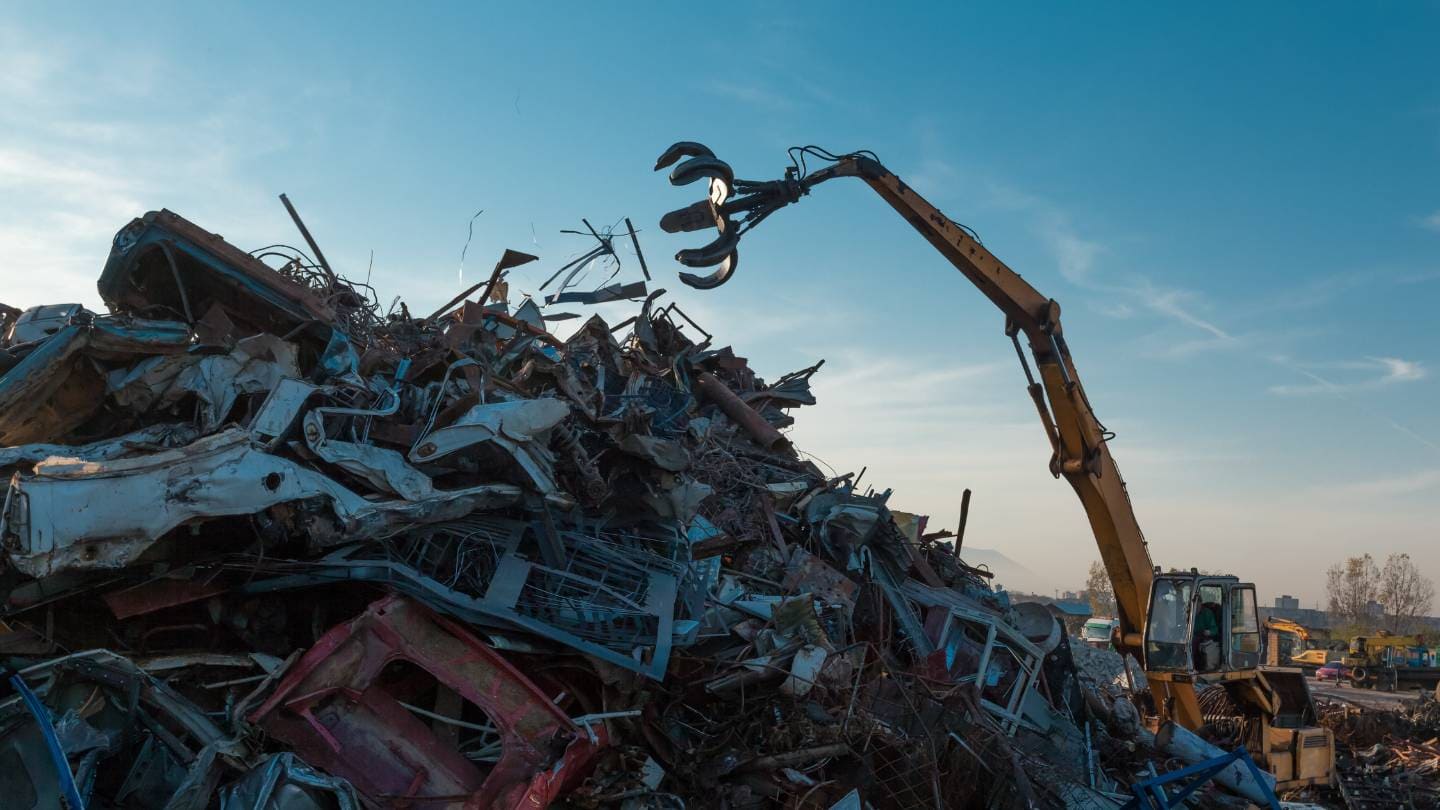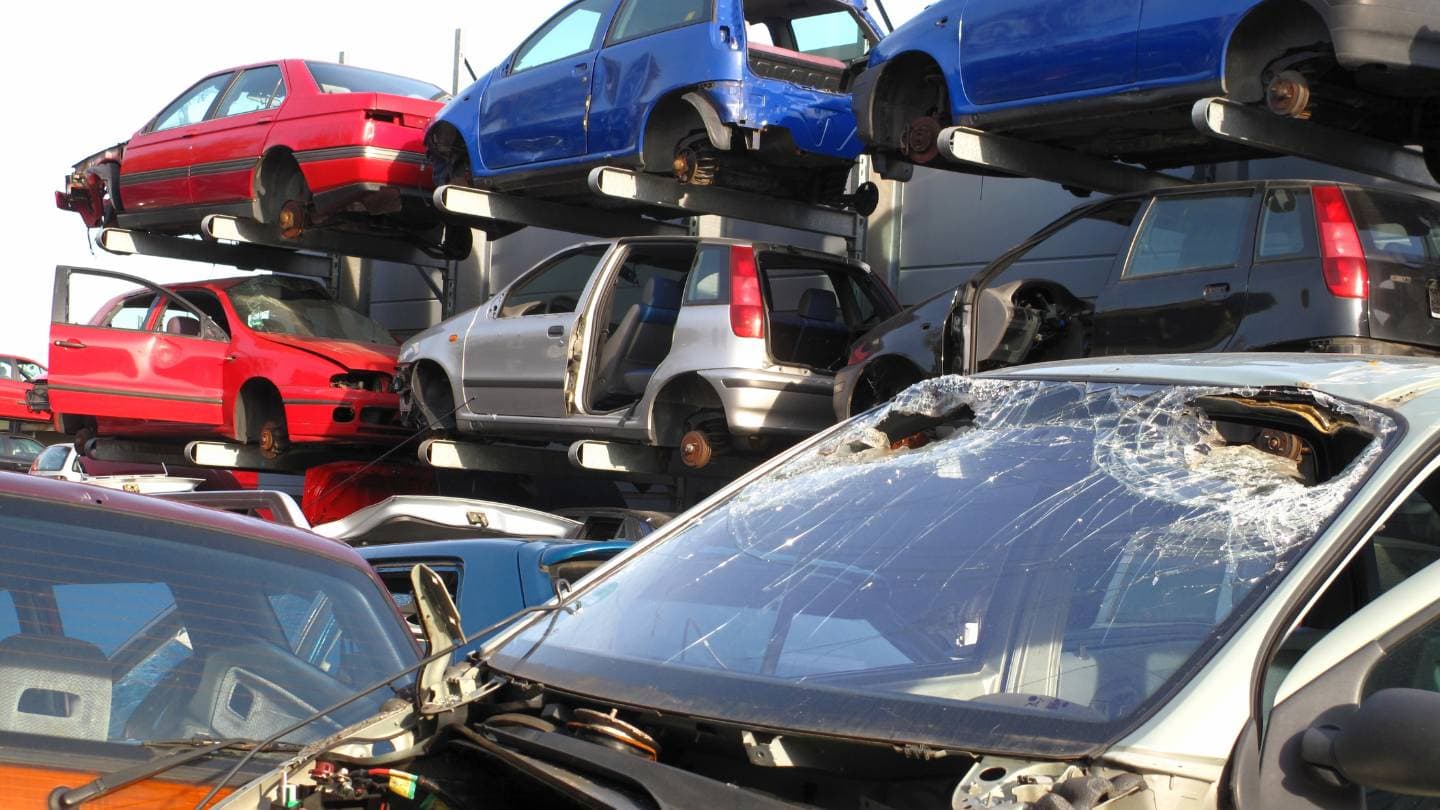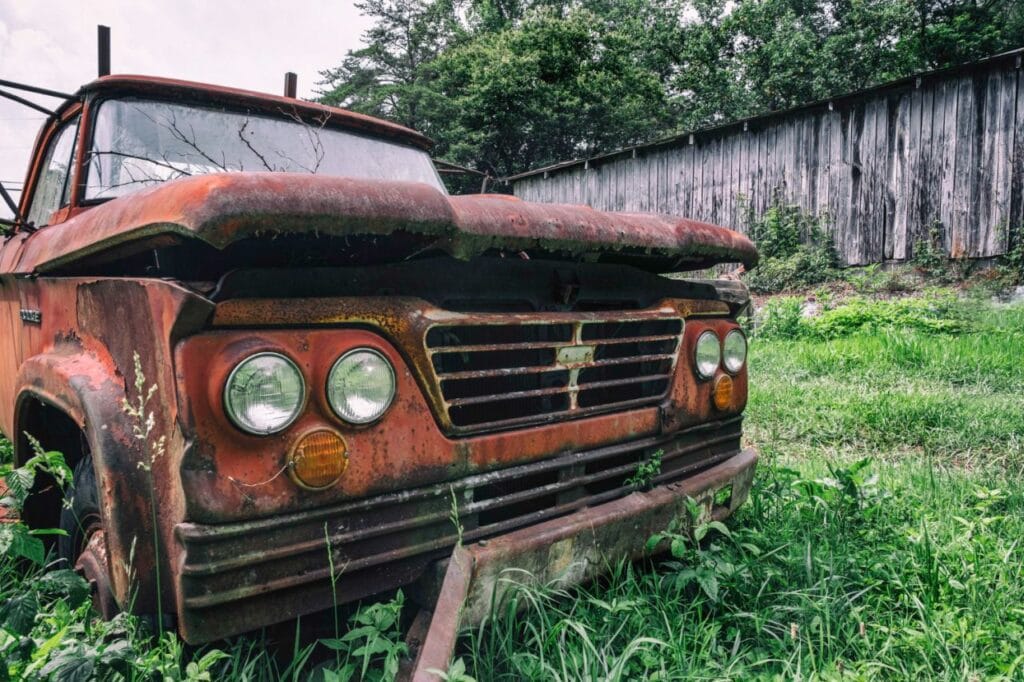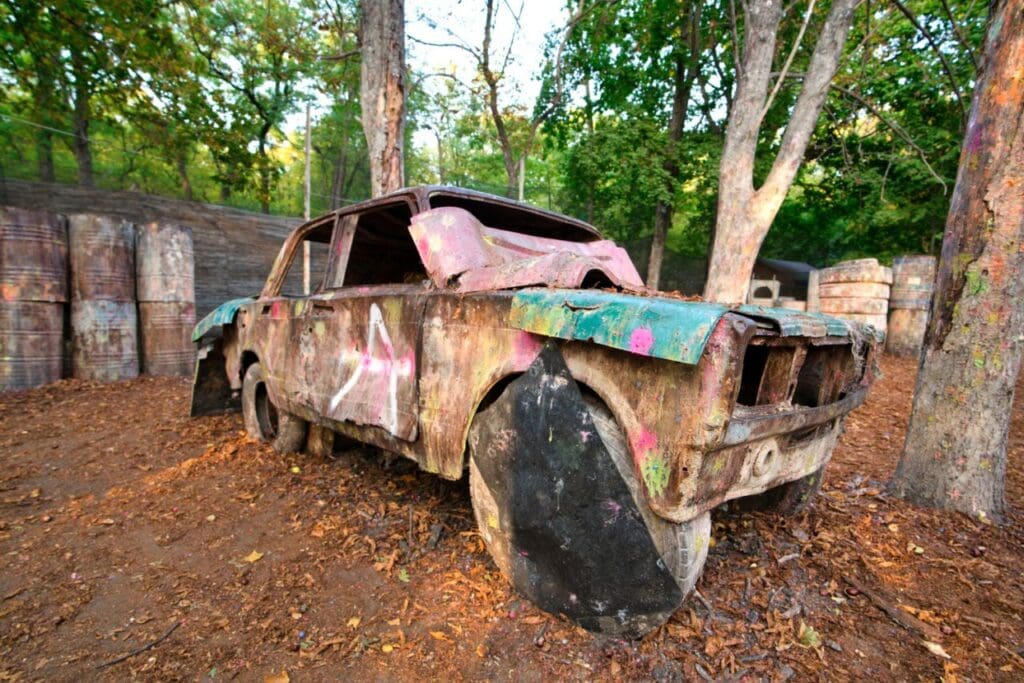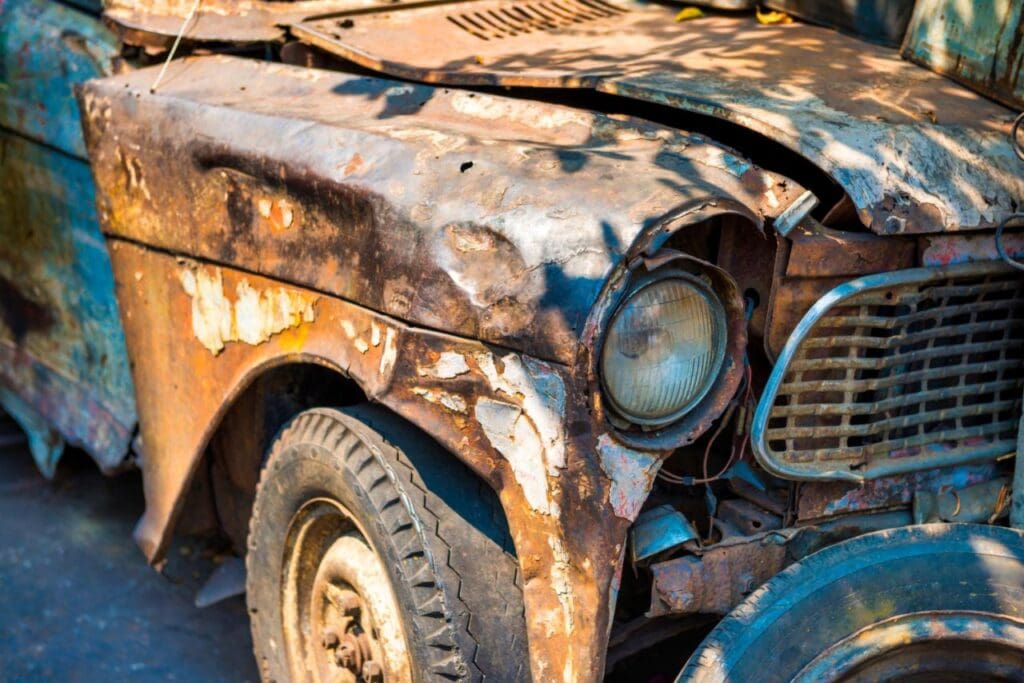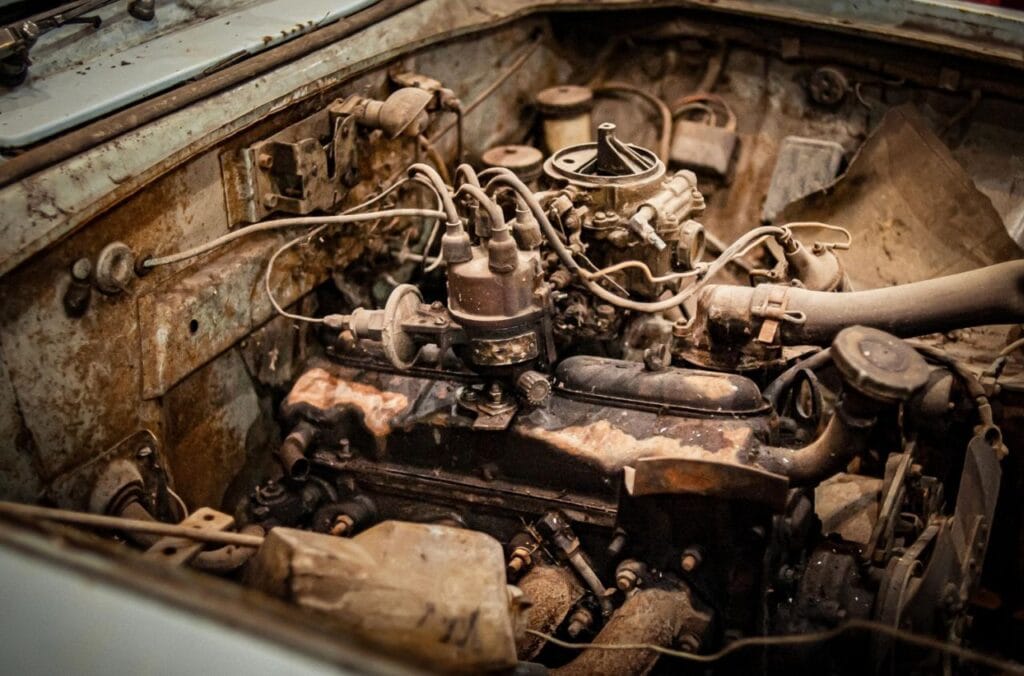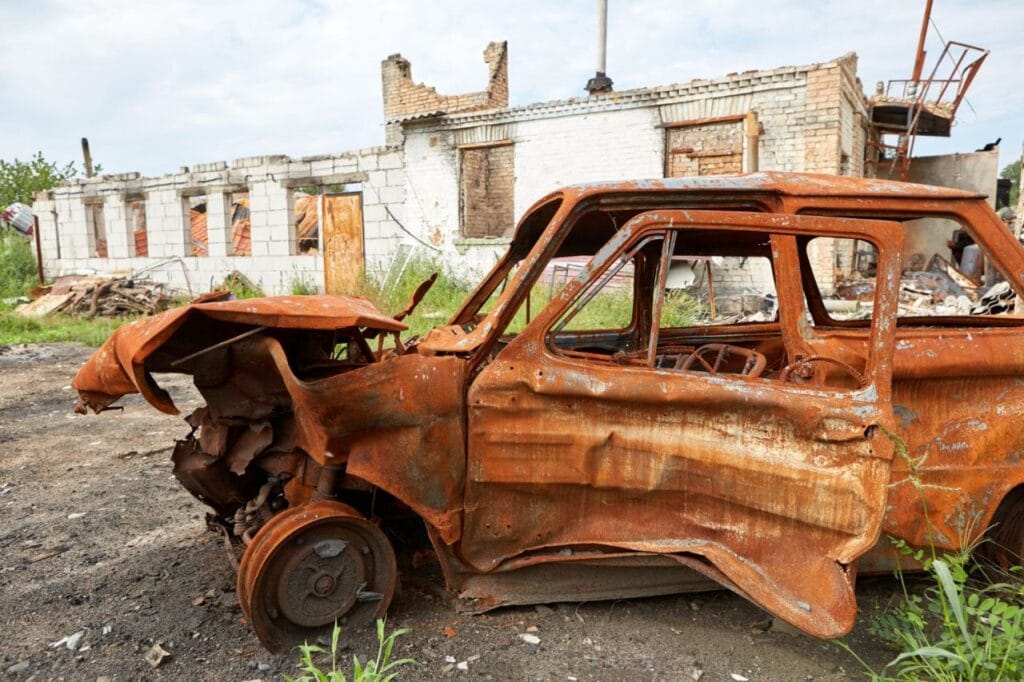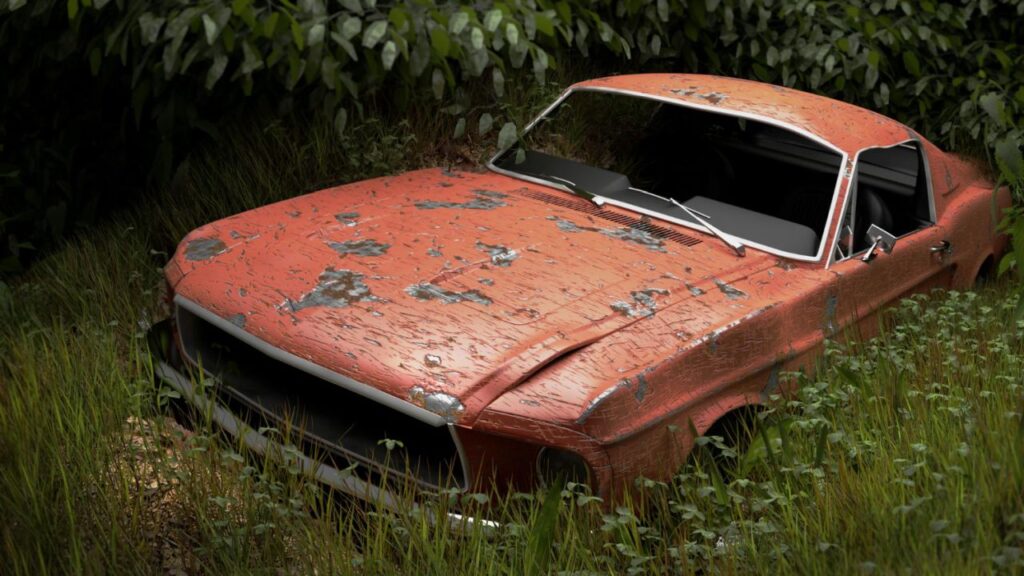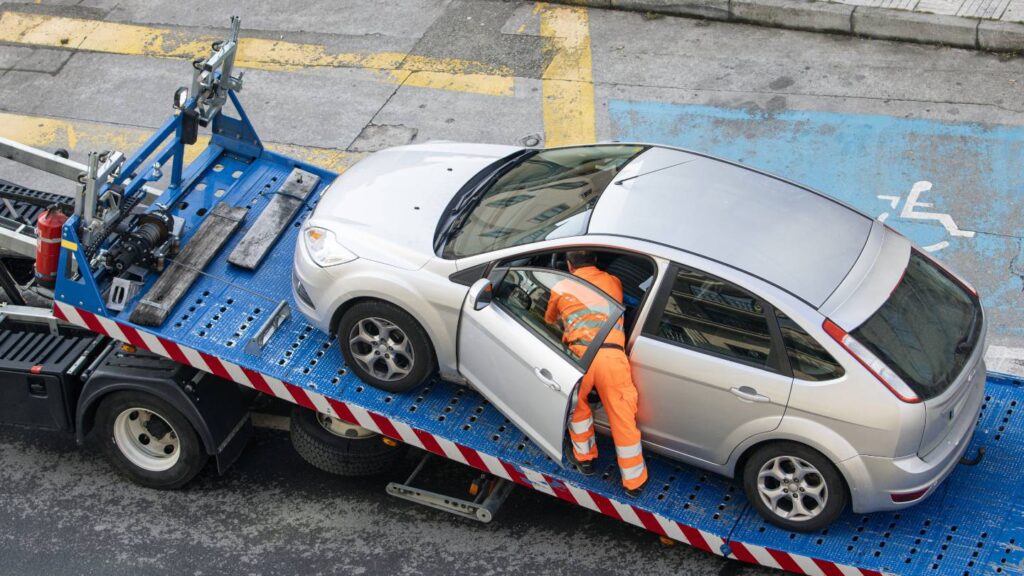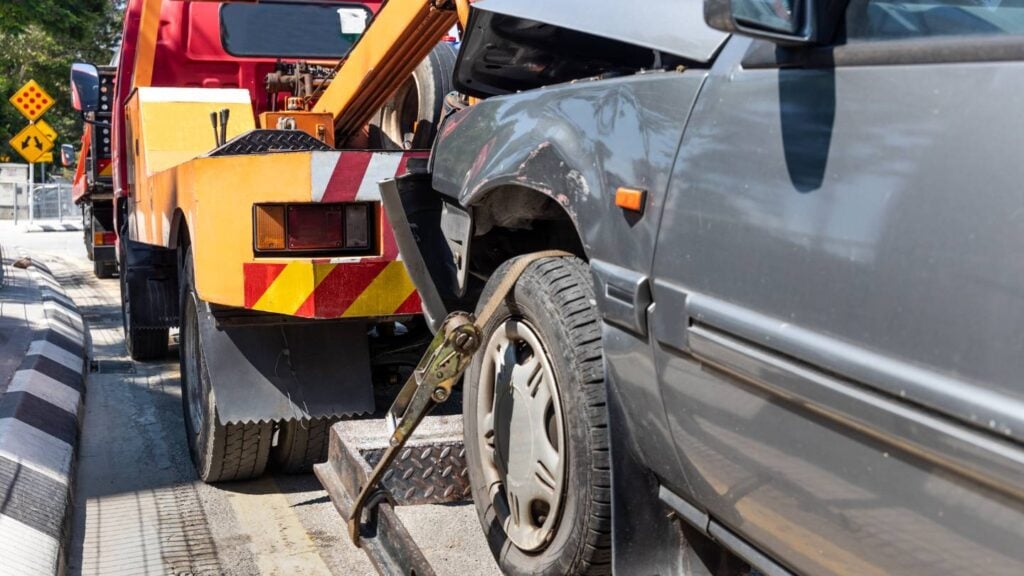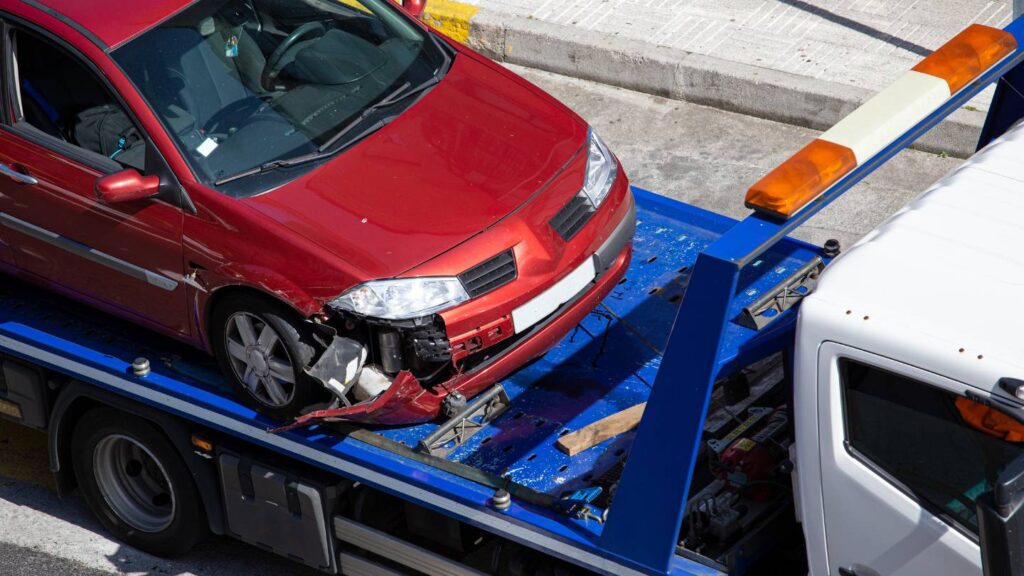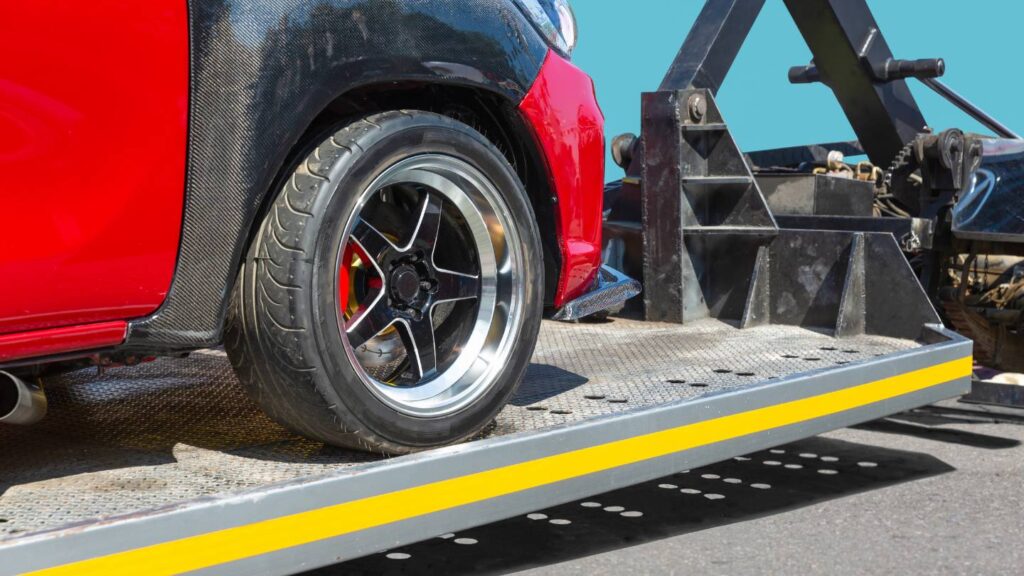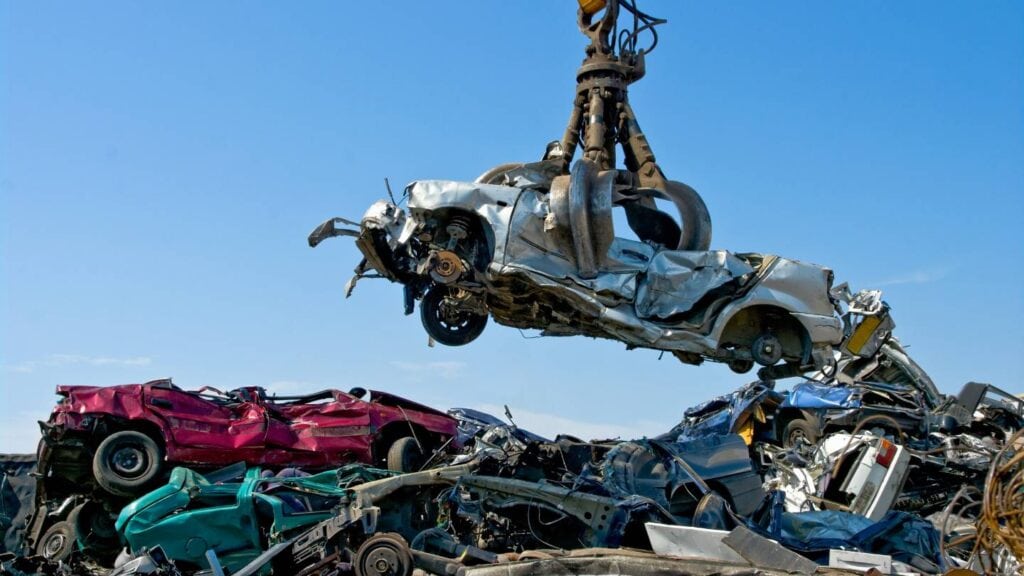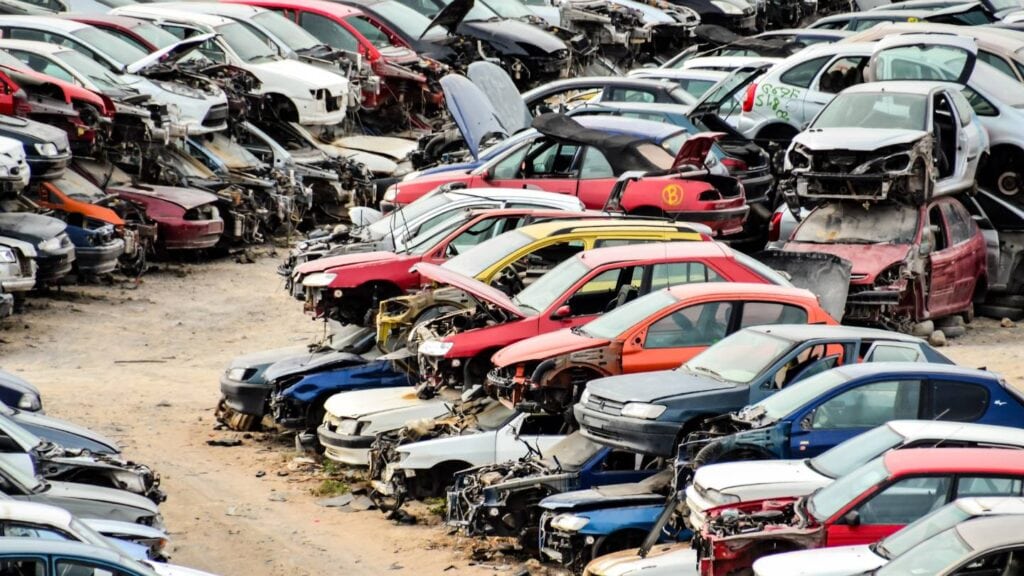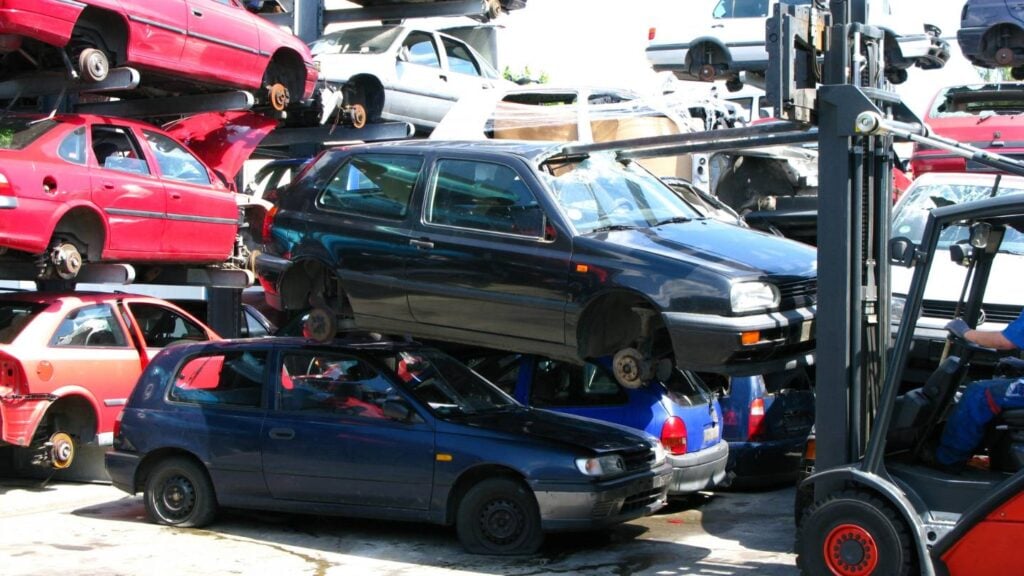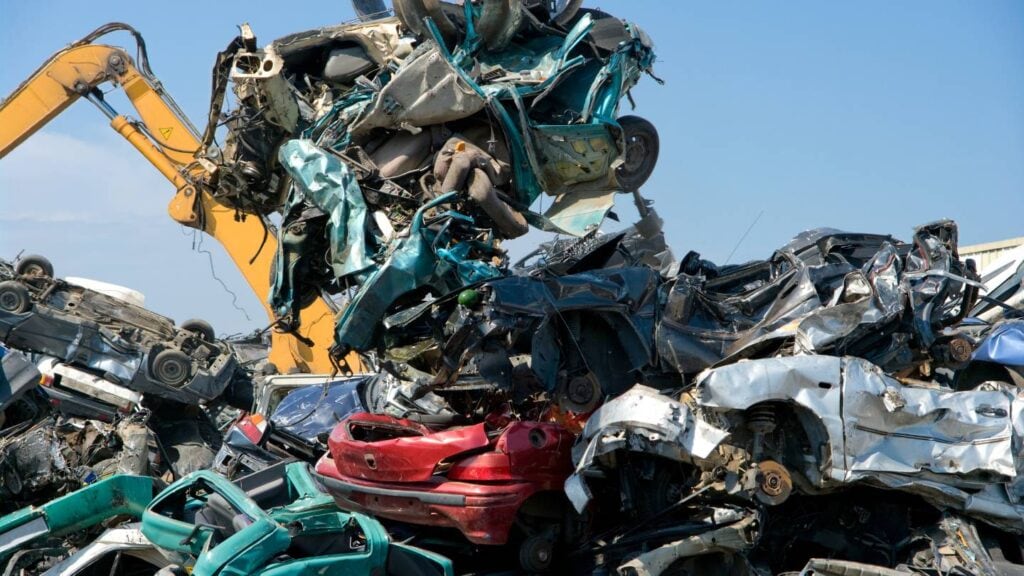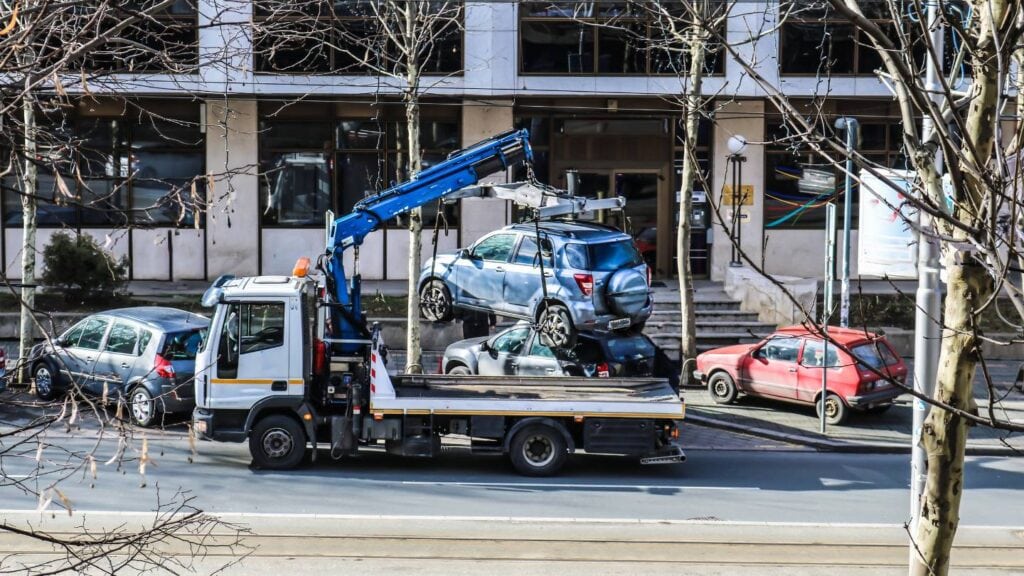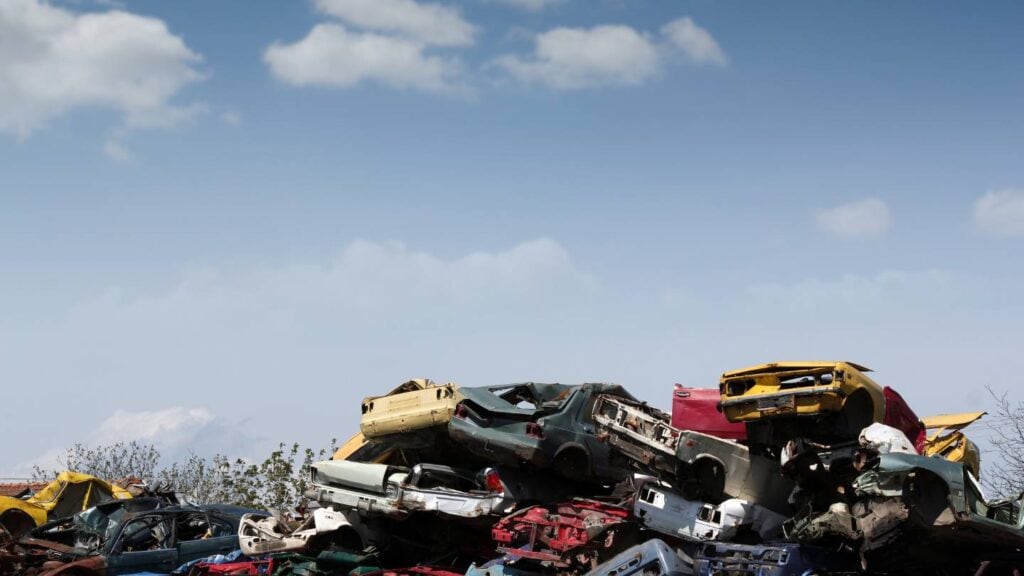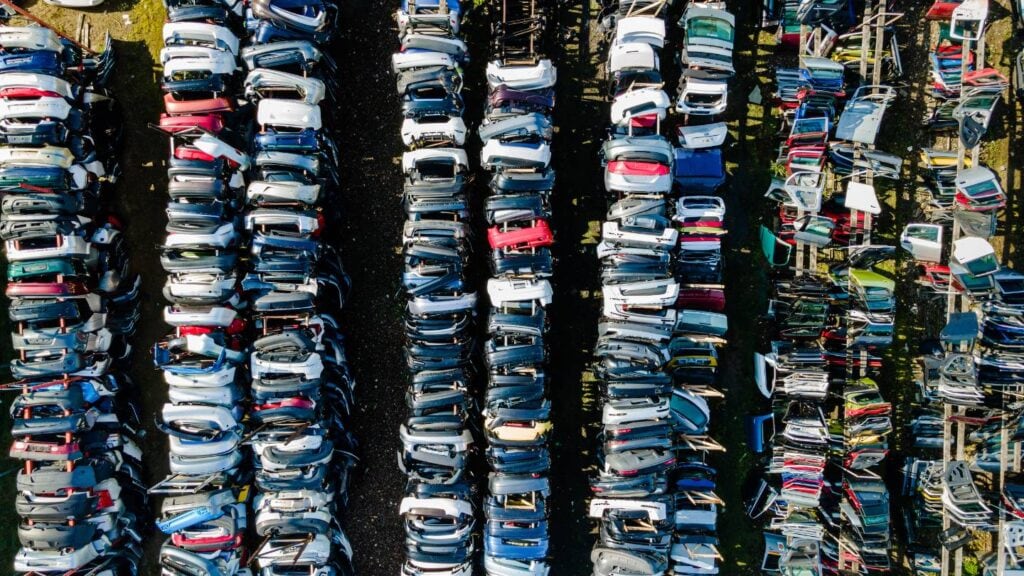Most people sell or trade in their old car when they get a new one. Nevertheless, there are instances where you cannot do that due to the terrible state of your old vehicle.
Even though we've already gone over the best way to get rid of dangerous substances, you might be curious about your choices regarding junk cars.
Many eco-friendly options exist for those concerned about the impact of their vehicle disposal on the environment.
There can even be financial benefits for you in certain instances. You can still get rid of your old car in an eco-friendly manner by following these steps.
Recycle Your Old Vehicle In An Eco-Friendly Manner
Part It Out
You might get more money from your old car by selling it in parts rather than completely. You can sell individual components on websites like eBay if you're skilled and have the time.
After selling everything, donate the remains to a scrapyard. Tyres aresy trash item, but the steel rims pose a significant threat when discarded.
Trade It In For A Pick-N-Pull
You may often sell your old car to a company that owns a lot where individuals can go and get the parts themselves if you'd rather not do it yourself.
Even while the lot owner might gain a few thousand dollars from it, you could still get a few hundred bucks without doing all the labour yourself.
Leave It To The Charities
Your vehicle can be worth more in the long run due to necessary repairs than it is worth alone. But many nonprofits can usually gather the workforce—and occasionally even the donated part—to fix the car.
Then the money will go to the charity. A low-cost vehicle finds a good home, and the charity earns a respectable sum. Complete victory.
Scrapyard
If your vehicle is completely unsalvageable, you may arrange for a scrapper to collect it. You won't get much money for it, but getting rid of it won't cost you either.
However, before rescuing the vehicle, you must remove the wheels and tyres, drain the fluids, and disconnect the battery.
There are still many options for correctly disposing of an old, beat-up automobile. It could be easier to drop it down at a nearby cliff or leave it lying around, but the earth will be grateful you didn't do that.
How Will Getting Rid Of Your Old Car, Affect The Environment And The Economy?
Vehicles Ledger Properly Avoids Chemical Spills
Reduce the likelihood of chemical and pollutant contamination of soil by properly processing hazardous materials. Fluorocarbon refrigerant gases can damage the ozone layer and increase global warming.
Recycling car batteries eliminates lead and sulfuric acid, which harm humans and animals. For both you and the planet, it's best to dispose of old vehicles in an eco-friendly and safe way.
Wildlife Protection
Preserving native plant and animal species is another benefit of ethical vehicle recycling. Because of the soil pollution and erosion caused by steel mining, animals cannot continue their regular lives and may even develop sickness.
Water quality and the expansion of wildlife are affected by sediment flow into bodies of water caused by land erosion.
Furthermore, landfills occupy a large amount of space, further reducing the size of animals' habitats, and they are located far from a species' natural environment, making it unlikely that animals (and plants) can survive and thrive there.
Notably, materials such as automotive lubricants do not break down rapidly. For example, tyres release pollutants into the air and ground for the fifty to eighty years it takes them to break down.
Reducing Landfill By Efficiently Recycling Automobiles
Unfortunately, landfills are the most likely destination for unwanted scrap cars need to be recycled properly. Many car tyres are buried or burned, leading to significant pollution, making this an enormous concern.
Additionally, it is not uncommon for scrap metal to release harmful compounds into the soil, which can harm both plants and groundwater.
Reusing Old Vehicle Parts Decreases Demand For New Metal
The primary component of produced vehicles is the steel body frame. The good news is that mining for new steel is less necessary because automobile steel can be reused and recycled. Recycling steel reduces coal and energy consumption by 75% compared to producing steel from raw materials.
Eliminating Automobiles Properly Decreases Emissions Of Greenhouse Gases
Reducing energy usage is one of the many benefits of recycling vehicles. It achieves this goal by decreasing the need for natural resource extraction.
The combustion of fossil fuels during metal production increases atmospheric CO2 levels and accelerates the rate of climate change. An increase in recycling scrap metal from automobile removal might significantly decrease emissions each year.
Recycling items like auto glass can further reduce the need for new resources. In the long run, this helps the environment tremendously by lowering your carbon footprint if you opt to auto-recycle.
There Is A Positive Economic Impact From Recycling Automobiles.
Accurately disposing of used cars has advantages that extend beyond the natural world. It offers a budget-friendly answer that guarantees the continuation of numerous companies.
These recycled materials, particularly scrap metal, find use in the manufacturing sector and in the building business, both domestically and internationally. This helps companies reduce the cost of making new steel, keeping consumer prices low.
Make Space
Clearing up room in your garage, driveway, or parking area is a big perk of scrapping an old car. Having an ELV that is taking up space in your home, rusting, or leaking dangerous substances is the last thing you want when buying a new automobile.
You could, instead, sell your old automobile for cash and have it hauled away in one fell swoop, all in preparation for your new ride.
Things To Think About When Choosing A Reliable Scrap Car Buyer
The following are some things to think about when searching for a reputable scrap auto buyer:
Certification And License
Certain licences or certifications may be required by the companies you choose. Consequently, if you intend to sell your vehicle to a junkyard, you should be aware that they must have a permit to function. If they do not possess this authorisation, it may raise concerns.
Inquiring about their qualification and licence up front is going to be okay. As proof that they are a legal junkyard or junk removal service, they should have no trouble showing you this.
That's not always true, especially for junk car removal services that safely take your car to a recycling site.
Reputation
You should only do business with companies that have a good reputation. Finding a salvage auto buyer with a stellar reputation should be your priority.
Examining their existing client feedback will provide you with this information. You should be able to locate the reviews on websites other than those belonging to the buyers.
To rephrase, it is possible to skew and filter results by only considering reviews posted on the buyer's website, as these reviews may only reflect the positive aspects of the organisation.
Pricing
It would help if you put a premium on getting a good price when selling a scrap car. Ideally, you'd find a junk car buyer in your neighbourhood who would pay top dollar for your old car and treat it with the respect it deserves.
Because of this, the amount a reputable scrap car buyer is ready to pay for your vehicle is a major consideration. To acquire this comparison, request quotes from various businesses and choose the one that offers you the best deal after considering all the criteria we mentioned.
Experience
Consulting with seasoned businesses is advised by experts. Avoid dealing with a new business that isn't familiar with the market for used cars and won't give you a fair price for your old ride.
You may rest assured that a larger, more established organisation would pay top dollar for your vehicle because they know its exact value.
Another potential issue after selling your vehicle is that the company may need to comprehend the documentation that needs to be signed in your state if they are relatively new.
Customer Service
If you want to sell a scrap car, customer service is key. If you have never been through this, you will requthis is the first time ire someoshow you the ropeou don't, it's easy to become confused and overwhelmed.
For that reason, while searching for a reputable scrap vehicle buyer, it's crucial to keep customer service in mind. Calling the company and seeing how helpful they are in answering your queries or reading reviews on other websites will give you an idea of their customer service.
Payment Options
You should inform the business beforehand of your prefered payment method if you have one. You should be able to get cash from the best junk car buyers no matter what automobile you have, how bad it is, or where you live.
Nevertheless, some inexperienced startups may employ questionable payment methods; in particular, if the company is not genuine, this could be an attempt to defraud you.
Schedule
People often need to be more awareg able searching for a top-rated auto removal company. In an urban region, you might discover the best scrap vehicle buyers in your neighbourhood, but they might be busy.
Dealing with a fast-paced business could be inconvenient because they will only contact you for a few months. That is why it might be in your best interest to guarantee the prompt pickup of your vehicle, even if it means sacrificing this company's popularity.
Transparency
You should also ensure the best junk vehicle buyers are completely forthright with you while dealing with them. For instance, you may be in a position where you have no alternative but to accept the offer because some companies conceal prices from you until they meet with you.
You may trust the company more when they are honest with you. It eases your decision to choose this business instead of another, even if their offer is a little lower.
Evaluation Approach
When selling your old car for scrap, there is no set method for determining its value. To acquire a feel for your automobile's worth, you may try a few different approaches and get offers from various trash car buyers.
Finding a reputable scrap auto buyer requires familiarity with their assessment procedure. Please find out how much they're prepared to pay for your vehicle and inquire how they arrived at that figure.
Location
For some reason, Google's "best scrap car buyers near me" results aren't always accurate. Advertisements or sponsored adverts, in which people promote their businesses and seek clients looking to sell their cars, are the first things that appear in the results list.
The main issue with this method of displaying the results is that the company that is geographically nearest to you may be featured later. Regardless of how far away the company is from your location, they will still appear as the first result if they pay for Google ads.
Consequently, ensure the scrap vehicle buyers you're considering are open and not worried about the towing service—which could be a major concern if you're handling it yourself.
Conclusion
Getting rid of cars the right way can save you money and help the environment. You can be eco-friendly by selling your old car for parts, turning it in for a pick-n-pull, giving it to charity, or having a scrapyard.
Getting rid of an old car in an environmentally friendly way can help protect wildlife, stop chemical spills, cut down on trash in landfills, and lower the need for new metal.
You can divide up your old car into parts by using websites like eBay. You can sell individual parts and give the rest to a scrapyard.
Companies that take in cars can also sell parts for a fee, and charities can fix cars with parts that people give. There is a service that can come pick up your car if it can't be fixed at all.
Recycling cars in an ethical way also helps protect local plant and animal species by stopping soil pollution and erosion that come from steel mining. Most of the time, people who don't want their old cars end up in landfills. Recycling steel uses 75% less coal and energy than making steel from raw materials.
Recycling cars also lowers greenhouse gas pollution by cutting down on the need to take out natural resources and use energy. Recycling the metal from old cars can cut down on pollution by a large amount every year.
Recycling cars has an effect on the economy that goes beyond the environment. Recycled materials, especially old metal, are used in manufacturing and construction, which lowers the cost of making new steel and keeps prices low for consumers.
You can make room for your new car by selling your old one for cash. This can be done in your garage, driveway, or parking lot.
Content Summary
- Recycling your old car is a crucial step towards eco-friendly vehicle disposal.
- Parting out your car and selling individual components can be financially beneficial.
- Trading your old car with a pick-n-pull company simplifies the disposal process.
- Donating your vehicle to charity can extend its life and support good causes.
- If the car is beyond repair, scrapping it is an environmentally responsible option.
- Proper car disposal prevents harmful chemicals from contaminating the environment.
- Recycling vehicles protect wildlife by reducing the need for steel mining.
- Efficient automobile recycling reduces landfill waste, preserving natural habitats.
- Reusing old car parts decreases the demand for new metal production.
- Proper disposal of cars helps reduce greenhouse gas emissions.
- Car recycling contributes positively to the economy by supplying materials for manufacturing.
- Removing an end-of-life vehicle (ELV) frees up space for new, more efficient cars.
- Ensuring the scrap car buyer is certified and licensed is crucial for legal compliance.
- A reputable scrap car buyer with positive customer feedback is more reliable.
- Getting a fair price for your scrap car is essential for economic benefits.
- Experienced scrap car buyers are more likely to offer fair prices and handle paperwork efficiently.
- Good customer service is important, especially for first-time sellers.
- Clarify preferred payment methods with the scrap car buyer beforehand.
- Consider the scrap car buyer's schedule to ensure timely vehicle pickup.
- Transparency from the scrap car buyer about prices and processes builds trust.
- Understanding the scrap car buyer's evaluation approach helps in decision-making.
- Location is important; local scrap car buyers may offer more convenience.
- Disposing of a car properly avoids the release of hazardous materials into the environment.
- Recycling old cars supports sustainable resource management.
- Eco-friendly car disposal aligns with global efforts to reduce environmental impact.
- Reusing and recycling parts minimises the extraction of new raw materials.
- Proper disposal of old vehicles can lead to a cleaner and healthier ecosystem.
- Car recycling is an effective way to manage the environmental footprint of automobiles.
- Choosing the right scrap car buyer ensures environmentally responsible handling.
- Efficient recycling of vehicles reduces the energy needed for new material production.
- Environmentally friendly car disposal is a step towards a greener future.
- The process supports the circular economy by repurposing valuable materials.
- Reducing landfill waste helps mitigate the effects of climate change.
- Proper car disposal is a key component in sustainable waste management.
- Car recycling contributes to the conservation of natural habitats affected by mining.
- Ethical disposal of vehicles helps maintain biodiversity and protect ecosystems.
- Recycling car components reduces the carbon footprint of the automotive industry.
- Environmentally responsible car disposal supports the global reduction of waste.
- The economic benefits of car recycling stimulate the recycling industry.
- Proper disposal of cars contributes to the preservation of clean water and soil.
- Car recycling is a practical solution for managing vehicle overpopulation.
- The process helps conserve energy and resources for future generations.
- Responsible scrapping of cars is a meaningful contribution to environmental health.
- Car recycling is part of a broader effort to achieve a zero-waste society.
- Engaging in eco-friendly car disposal practices demonstrates environmental stewardship.
- The recycling industry creates jobs, supporting the green economy.
- Scrapping cars reduces the extraction of finite resources like metals and oil.
- Efficient recycling processes ensure maximum use of every part of the car.
- Proper car disposal prevents the release of toxic substances into the environment.
- Car recycling is a responsible choice for environmentally conscious car owners.
Frequently Asked Questions
Yes, recycling cars allows for the recovery and reuse of valuable metals, plastics, rubber, and other materials, reducing the need for new resources.
Salvageable parts like engines, transmissions, and other components can be refurbished and reused, extending their lifespan and reducing waste.
Recycling facilities dismantle vehicles to sort and recycle materials efficiently, ensuring that reusable components are salvaged and hazardous materials are disposed of safely.
Individuals can choose certified recycling services for disposing of their old vehicles and ensure that fluids and hazardous materials are properly drained before disposal.
Many regions have regulations and guidelines that mandate eco-friendly disposal methods for end-of-life vehicles to protect the environment and public health.

